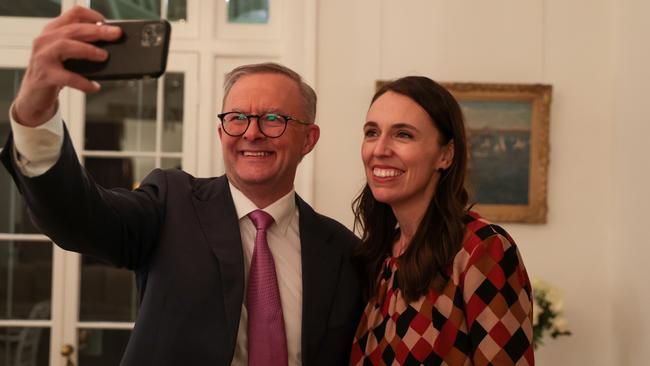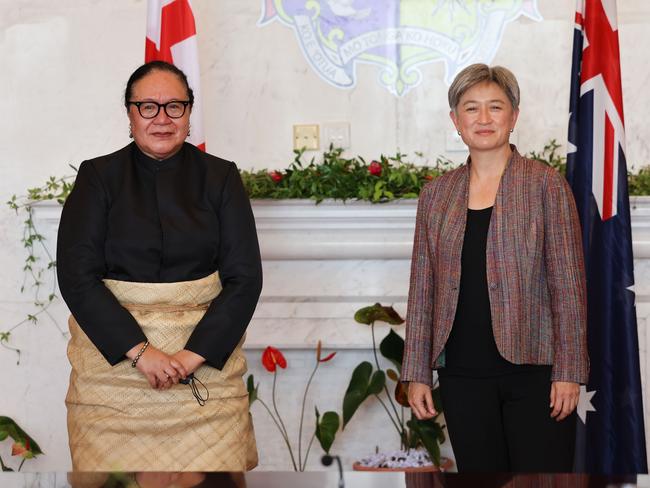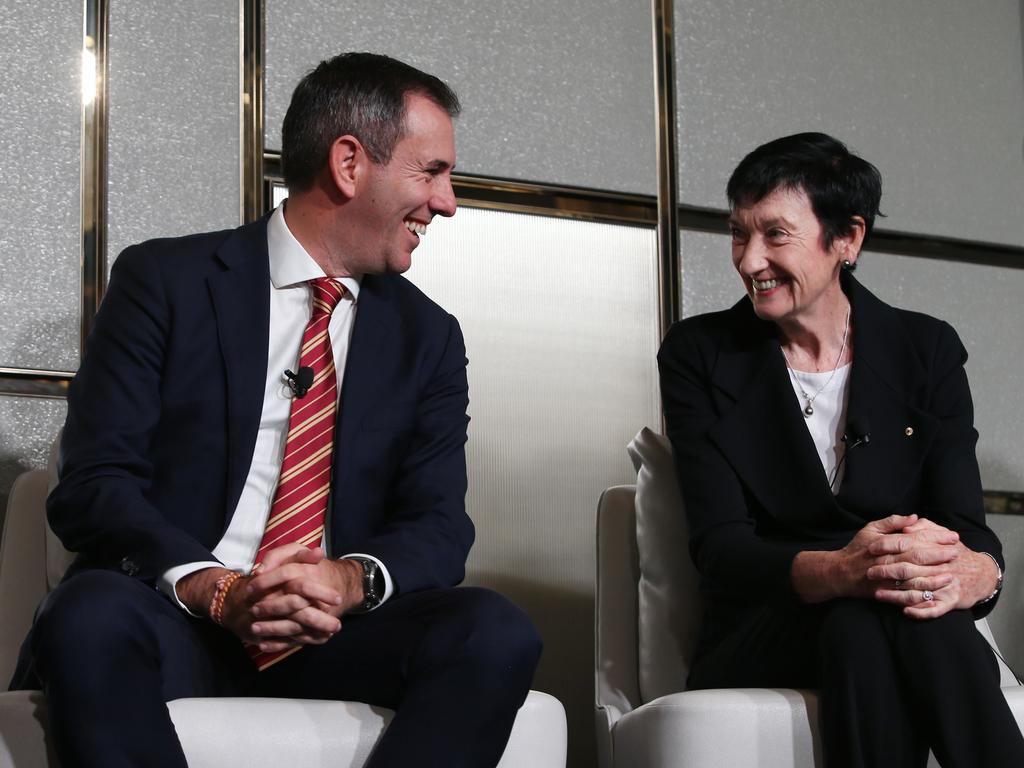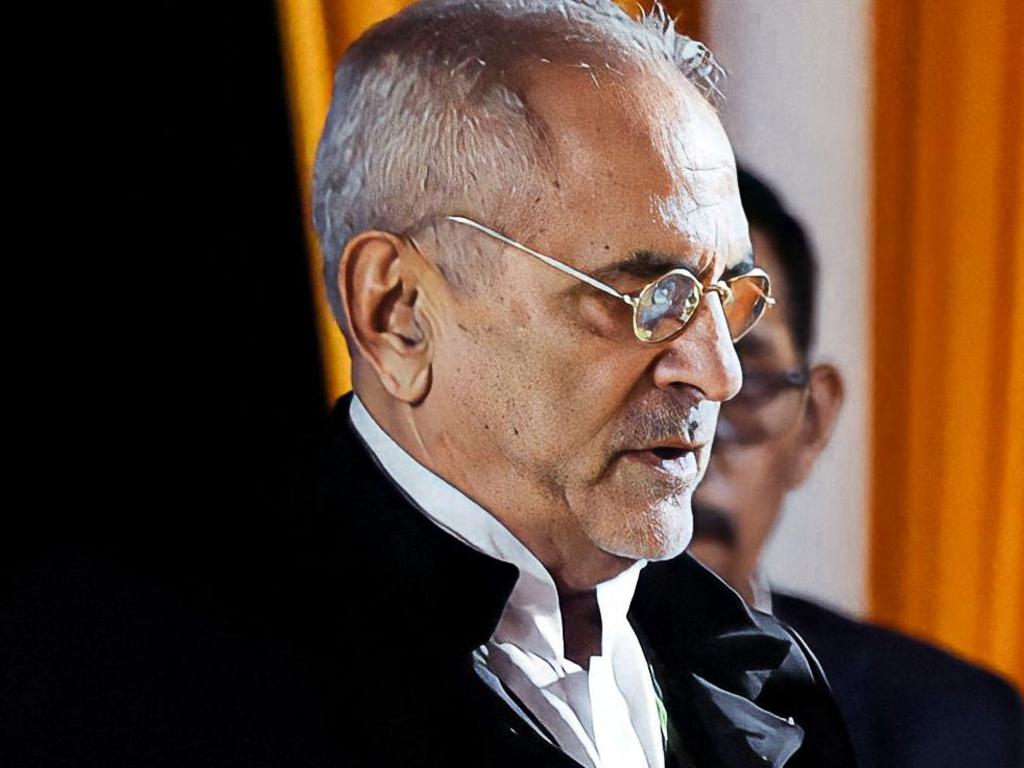Team Albo off to a flying start on foreign affairs
Anthony Albanese and Penny Wong are setting the right tone. Richard Marles? Not so much.

Pleasingly, Anthony Albanese and Penny Wong have made a reassuring and proactive start that not only provides continuity where it matters but is using the change of government to leverage fresh impetus. Their instincts and actions have been wise and competent.
It is early days and there are many tests to come, but in foreign affairs, as in all relationships, first impressions matter. The new Prime Minister and his Foreign Minister have set the right tone with our alliance partner in the US; the other Quadrilateral Security Dialogue partners (longstanding trade partner Japan and nascent trade and security partner India); our Pacific Island neighbours and New Zealand; our most complex and prospective neighbour in Indonesia; and China, our crucial trading partner and regional strategic threat.
In less than three weeks Albanese has made visits to Japan and Indonesia, while Wong joined him on those and added two Pacific trips. Asked what Pacific neighbours want from Australia, Wong said “more energy” – and she was not talking about electricity. It was an insightful observation. And that is what she is delivering so far.
As well as Wong’s two visits – to Fiji, Tonga and Samoa – Albanese has indicated he will attend the Pacific Islands Forum leaders’ summit later in the year, a meeting our prime ministers sometimes have delegated to juniors. This energised focus on the Pacific, sparked by China’s disturbing security deal with Solomon Islands and Beijing’s brazen diplomacy aimed at enmeshing other island nations, has been made tangible with new aid deals struck and a commitment of military personnel to train and assist Papua New Guinea.

More will be needed in the Pacific. As has been borne out by Solomon Islands actions, despite Australian troops and police leading efforts to save it from internal strife in recent years, the region needs constant attention. It is too much for the Foreign Minister to nurture alone; other relevant ministers ought to be visiting the region regularly to invest resources and build relationships in defence, health, education, justice, governance and agricultural programs.
When Albanese and Wong jetted off to the Quad leaders’ summit before they knew whether they would be in majority government and with only a handful of ministers sworn in, it was probably a blessing in disguise. During intense briefings before they left and on their flight to Tokyo, they would have been confronted by the sobering reality of our strategic threats and vulnerabilities, then had to stake out their positions publicly and quickly.

Albanese and Wong are leading lights of the ALP’s Socialist Left faction, which has tended to exhibit scepticism about the US alliance while being dewy-eyed about communist China’s rise. Those briefings and discussions with the three other leading Indo-Pacific democracies would have deepened their understanding of China’s ambitions and methods, as well as the centrality of US engagement in keeping the region stable and secure.
Right from the outset Wong and Albanese have acted with steel in their spines when Beijing might have hoped for a wobble. In Tokyo, when confronted with China’s overture to “reset” the relationship, Albanese squared his shoulders: “We will determine our own values. We will determine Australia’s future direction. It’s China that’s changed, not Australia.” For a man who had such a bumbling campaign as opposition leader it was an assured and clear-thinking start to his prime ministership.
From opposition, Labor had promised bipartisanship and continuity, to be sure, but it is another thing to see it follow through strongly and immediately, especially given some of its recent history (Sam Dastyari, anyone?). China’s belligerence as it converts its economic rise into military omnipresence has hardened attitudes in left-of-centre parties around the world, triggering unanimity between Democrats and Republicans in the US, and now Liberals and Labor here.

It is perhaps a pity Richard Marles had to stay home as Acting Prime Minister because the Defence Minister risks being the weak link in this government’s national security team. Revelations about his meetings with senior Chinese officials in recent years proved a campaign embarrassment, yet as soon as he was in office and was asked whether he would continue a “hardline” approach to China he mouthed lines that would have been welcomed in Beijing.
“We saw a lot of chest-beating on the part of the former government,” Marles told my Sky News colleague Pete Stefanovic. “They were pretty good at their rhetoric but in terms of what they actually did, managing the hard power equation, they were a complete failure.” That sort of oppositionist approach, excusable (perhaps) in early interviews, means Australia is blaming Australia for current tensions rather than standing up to China with a united voice.
Worryingly, Marles has decided to base himself among the bureaucrats at Defence Department headquarters rather than in his Parliament House suite, and he overreacted when former defence minister Peter Dutton revealed details about his efforts to purchase two US-built Virginia-class nuclear-powered submarines a decade before our Adelaide-built vessels will be available. Marles wrongly accused the new Opposition Leader of being inconsistent – back in September, Dutton, as defence minister, said publicly that he was pursuing that outcome.
Again, Marles’s oppositionist hyperbole is not serving the national interest. Opposition defence spokesman Andrew Hastie revealed that Dutton had gone public on the submarine negotiations detail because he feared Marles would not pursue the same path.
Wong, on the other hand, is already much more visible and assured than Marise Payne ever was – not that it would be hard. In such a fraught time of international and regional dilemmas, it was a constant liability to have a foreign minister as silent and invisible as Payne.
Wong, rightly, will be one of the most prominent ministers in the Albanese government, ensuring Australia’s arguments are heard and shared at home and abroad. The cavalcade of foreign ministers since Alexander Downer’s record term ended in 2007 (I was his chief of staff at the end) has been mixed.
Stephen Smith was solid but low key; Kevin Rudd used the position to plot his revenge against Julia Gillard; Bob Carr was a dilettante whose main aim seemed to be cramming in countries and famous people for his post-political diary; Julie Bishop was impressive but probably lacked focus on regional issues including the Pacific as she lobbied globally for a UN Security Council seat; and Payne was missing in action for almost four years. Wong could be a standout.
Albanese and Wong underlined their grasp of priorities by visiting Indonesia this week and making it a substantive two-day visit, including business leaders and one of our first two Muslim ministers in Ed Husic. Apart from all the security imperatives of working closely with Indonesia and encouraging its engagement with other democracies, the potential for economic links in both directions is immense.
The Prime Minister also told President Joko Widodo directly that he will be at the G20 summit in Bali this year, regardless of whether Russian President Vladimir Putin attends. Albanese’s reasoning and language was spot-on: “I’m focused on sitting with President Widodo, not sitting with President Putin. It is in Australia’s interest to have good relations with our Indonesian friends. The Indonesian presidency of the G20 is an important moment for Indonesia.” This would have been deeply appreciated in Jakarta as a lead to other members.
Meantime Labor has turned back two asylum-seeker boats, which is encouraging but raises questions about why they are coming again. Let us hope this is not being triggered by a new government’s plans to scrap temporary protection visas and the exception made for the Biloela family.
Apart from the concerns about Marles, the greatest annoyance in Labor’s foreign policy start is its alarmist harping on climate change. Diplomatically it is understandable because, for various reasons, it is what our Pacific Island neighbours and US President Joe Biden, for instance, want to hear. But we cannot afford for Albanese and Wong to believe their own publicity about climate change being our gravest threat. China’s actions over the South China Sea and in the Pacific clearly demonstrate there are far more pressing dilemmas.
As The Wall Street Journal editorialised this week, China’s encroachment in Solomon Islands and Cambodia is deeply worrying given its “long history of lying about its military intentions”. As the WSJ asserts: “The Chinese military is advancing around the world, and the best guarantee of keeping the peace is a US military and navy that can reassure allies and deter the hawks in Beijing.” I would add: And wise, co-operative allies willing to bear their share of the burden.
At home, the delinquency of governments (state and federal, Labor and Liberal) in pursuing emissions reductions rather than cheap, reliable power will continue to unleash economic trauma and probably stretch the Albanese government far beyond its competence threshold.
But our strategic challenges present the more enduring risks, and Albanese and Wong ought to be commended and encouraged along their firm and energetic path.








During the election campaign, with the major parties looking like Tweedledee and Tweedledum on climate, energy and fiscal management, my main concern about a change of government centred on national security and foreign affairs. This would be a perilous time, I figured, to place weighty challenges in the hands of a feeble and inexperienced team.